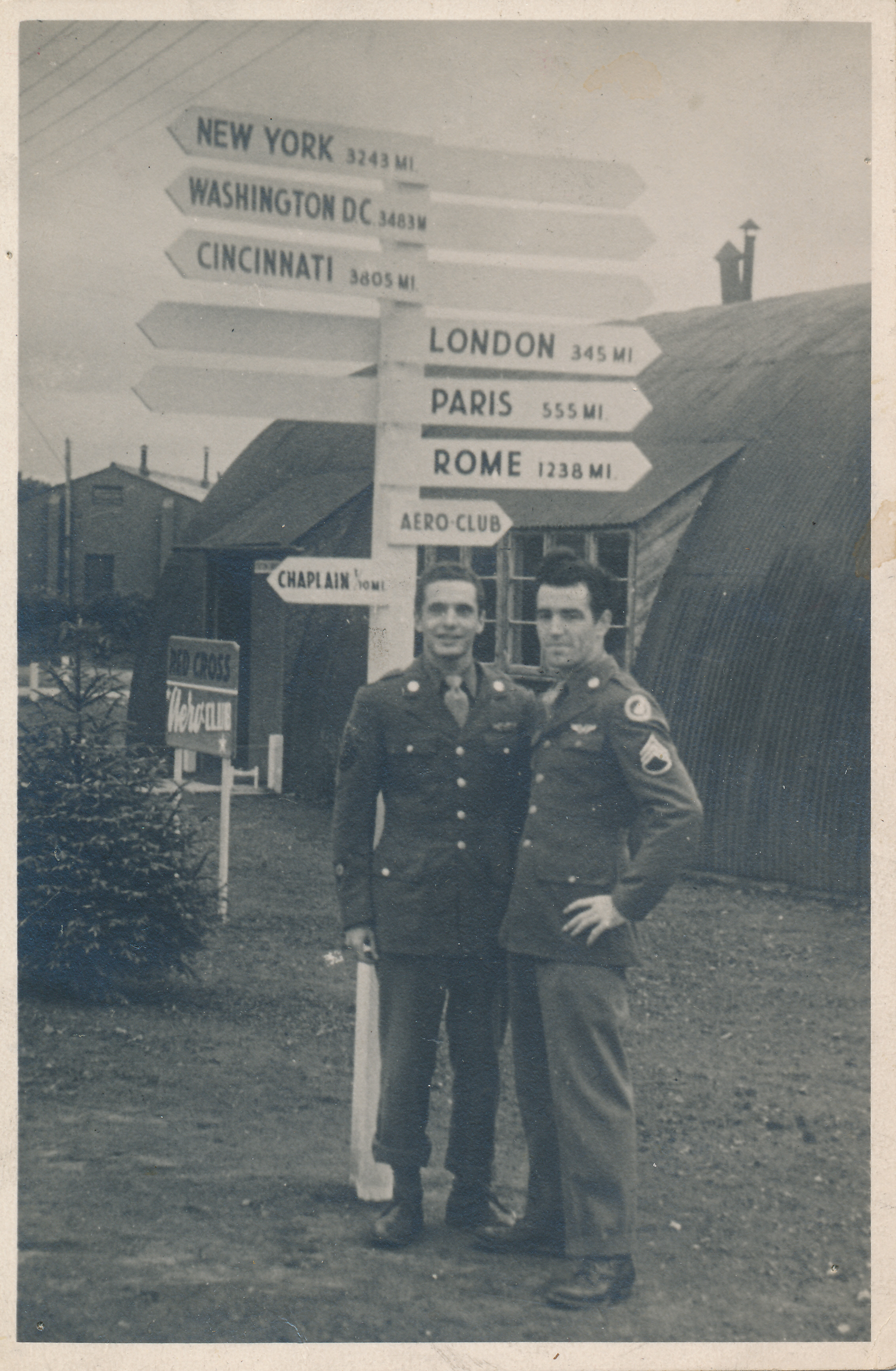So I did what all good writers do. I panicked, flew into histrionics, convinced myself that the sky was falling and all my work had been for nothing. That was fun and productive…
We writers all know the feeling: We’re well into the writing of a novel or story, when we abruptly realize that we have a plot hole wide enough to accommodate an eighteen-wheeler. Sometimes the realization is our own – we happen to glimpse our narrative in a way we haven’t before, and the issue, which had been invisible to us, is suddenly so clear we wonder how we could have missed it. At other times we need an outside reader to show it to us. I hate when it happens that way; I feel like a moron. “How did I not see this?” I ask myself.
I recently faced this problem, although in a slightly different way. I’ve been working on a non-fiction piece for months now, and I had someone read it for me, someone I trust completely. He told me that I had one of my facts wrong – a point of family history that I thought I knew and didn’t. This was something central to the story I’m telling, the very lynchpin of my essay. I felt like a bomb had gone off, blowing a giant hole in my narrative.
So I did what all good writers do. I panicked, flew into histrionics, convinced myself that the sky was falling and all my work had been for nothing. That was fun and productive…
Here’s a dirty little secret: This happens to me a lot. I’m pretty sure it happens to all of us a lot. Plotting isn’t easy and it’s rare for any of us to get it right the first time. Plus, storylines tend to evolve in the writing, even for those of us who outline ahead of time. (A subject for another post.) And so, yes, plot holes appear with some regularity. The question is, how do we tackle them and move beyond them?
Let’s start with this: Panicking and freaking out is NOT the answer. Relax. Breathe. It’s going to be all right. Your book/story is not irrevocably doomed. Really.
Read that last paragraph again. I’ll wait.
There. Feeling a little better?
Okay, Step 1: Take a moment to remind yourself of what your story is about. In my case, I went back and revisited the basic themes of my essay. And I realized that while this point I had wrong undermined a small section of my story, it didn’t invalidate all of it. Not even close. Sometimes it’s helpful to remember that the stories we tell tend to be bigger and more complex than we think. It’s rare that one element of a story is so crucial that its failure renders the rest of the tale useless.
Step 2: With the fundamentals of your story firmly in mind, ask yourself what you have lost with this recent realization. Chances are, it’s not the narrative apocalypse you think it is. If necessary, chart your narrative on paper or on a white board, and pinpoint the place where your plot thread falters. Visualizing your work in this way can do two things: 1) It can offer some perspective on the relative sizes of your overall story and this specific problem. That’s usually reassuring. And 2) It can help you discover paths around the plot hole.
Step 3: Brainstorm. I don’t mean for that to sound simplistic, and I’m not trying to say that these problems are easy to overcome or that somehow they’ll fix themselves. If you’ve spotted an issue big enough to cause you to panic, it’s likely that repairing it will take some work and some time. Don’t expect to find the answer in a matter of minutes or even a couple of hours. It might take several days; it might take a week, or more. That’s all right. No one knows your story as well as you do. The solution to your problem resides in your mind. It might be deep in your hind brain, but it will emerge in time. Be patient, don’t lose hope. You’ll figure this out.
Finally, keep these things in mind: First, writing is hard. The creative process is filled with moments of progress and inspiration, and also with setbacks and even crises. In other words, this is not a breakdown of the process, but rather part of the process. It’s normal. Second, if you have gotten this far with your project it’s because there is a story there. Your creation deserves your faith, your conviction that it is worth saving. Hold on to that. Your belief in your own work will see you through. And finally, remember that it’s okay to walk away from a stubborn narrative for a little while. Don’t give up on it. Never give up on it. But if it’s just not happening at the moment, turn to something else for a time. This piece will still be waiting when you’re ready to face it again.
Best of luck and keep writing!









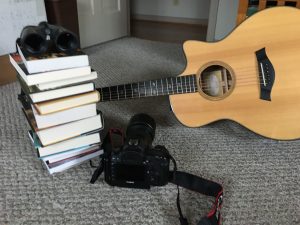 Last week, I went on a hike and took a bunch of photographs (if you haven’t already,
Last week, I went on a hike and took a bunch of photographs (if you haven’t already, 
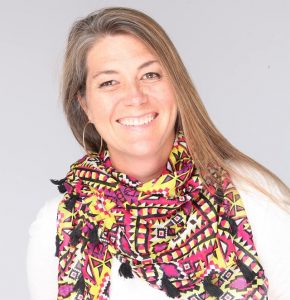 When I finished writing the first draft of The Song of All, I was convinced of two things:
When I finished writing the first draft of The Song of All, I was convinced of two things: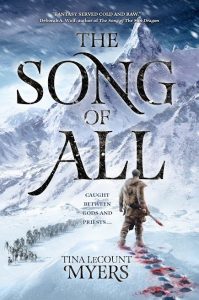 Over the next several months, as I edited The Song of All and honed my query letter, I felt confident saying, “The Song of All is a stand-alone epic fantasy novel with series potential.” After all, I had an outline, a roster of characters, and some heartfelt themes. I knew where the story was going and where it would end up. But when the series sold based on the first book and I began to write the second book, I soon realized that, while I had read tons of books in series, I had little or no idea of how to write one. In my giddy state as a writer with a book contract, I didn’t let this fact stop me. I continued to write the story, knowing that I would need to rewrite it many times, confident that I would learn how to write a series.
Over the next several months, as I edited The Song of All and honed my query letter, I felt confident saying, “The Song of All is a stand-alone epic fantasy novel with series potential.” After all, I had an outline, a roster of characters, and some heartfelt themes. I knew where the story was going and where it would end up. But when the series sold based on the first book and I began to write the second book, I soon realized that, while I had read tons of books in series, I had little or no idea of how to write one. In my giddy state as a writer with a book contract, I didn’t let this fact stop me. I continued to write the story, knowing that I would need to rewrite it many times, confident that I would learn how to write a series.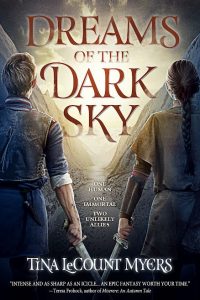 1. Fully explore and flesh out the world-building. For some writers of science fiction and fantasy this might be obvious because world-building is their jam, but for other writers, who are more interested in themes or characters or plot, digging deep into world building might not be their first choice. Nevertheless, the better your understanding of how your world works (geography, socio-economic and political structures, cultural and legal norms, clothing, food, relationships, architecture, magic, etc) the easier it will be to see how the plot will unfold, where the themes might manifest, and how the characters will react.
1. Fully explore and flesh out the world-building. For some writers of science fiction and fantasy this might be obvious because world-building is their jam, but for other writers, who are more interested in themes or characters or plot, digging deep into world building might not be their first choice. Nevertheless, the better your understanding of how your world works (geography, socio-economic and political structures, cultural and legal norms, clothing, food, relationships, architecture, magic, etc) the easier it will be to see how the plot will unfold, where the themes might manifest, and how the characters will react.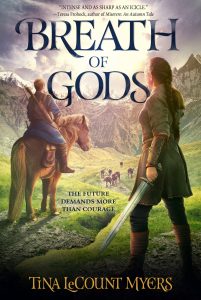 4. Upping the stakes without jumping the shark. What keeps someone reading a series? Characters we love (so develop those characters) and the situations they find themselves in. As a reader, I fall in love with characters and want to know what happens to them as they face challenges, but if they face the same challenges over and over it can get boring. I want them to learn and grow from their obstacles. As a writer, creating new challenges for growth can run the risk of going over the top. Killing off everyone that a character loves over a series definitely ups the stakes. But where does it leave your character? And where does it leave your reader? It is a balance between tension and emotional exhaustion, and something which I am still working on.
4. Upping the stakes without jumping the shark. What keeps someone reading a series? Characters we love (so develop those characters) and the situations they find themselves in. As a reader, I fall in love with characters and want to know what happens to them as they face challenges, but if they face the same challenges over and over it can get boring. I want them to learn and grow from their obstacles. As a writer, creating new challenges for growth can run the risk of going over the top. Killing off everyone that a character loves over a series definitely ups the stakes. But where does it leave your character? And where does it leave your reader? It is a balance between tension and emotional exhaustion, and something which I am still working on.
